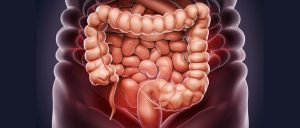
Dean Ornish is a medical doctor who advocates using nutrition to treat heart disease. He has published many books detailing his heart studies, including his 2008 book called The Spectrum. Ornish headed many studies, but I will highlight a few because I do not want to make the blog too long. All of his studies had participants change their diets and engage in exercise and stress management, so it is hard to prove which of these three caused all of the positive health effects. Diet likely plays the largest role, as people who continue eating a western diet but exercise and engage in stress management still have very high rates of heart disease.
The results from his studies are nothing short of amazing. People who have had multiple heart attacks, bypass surgeries, and were extremely old were able to reverse their atherosclerosis, angina, and overall well-being. They were able to walk and hike again without being out of breath or having chest pains.
It is never too late to change your diet. In some of his studies, Dr. Ornish recruited subjects who were expected to live no more than a few years, but after changing their diet and lifestyle, they lived for decades. Many doctors do not believe that nutrition plays a role in heart disease, and the ones that do often believe that patients are not willing to follow a mostly vegetarian diet.
Lifestyle Heart Trial
Angina: pressure in the chest because the heart is not getting enough blood—most likely from atherosclerosis
Atherosclerosis: plaque buildup in your arteries that restricts blood flow. Heart attacks are caused when the plaque breaks off and clogs an artery somewhere, cutting off blood flow to an area of the heart and completely killing that part of the heart for good.
One study conducted by Ornish was called the Lifestyle Heart Trial. It was a year-long study showing that diet and lifestyle changes could reverse coronary heart disease. 28 patients were assigned to the experimental group, and 20 patients were assigned to the control group (1). Experimental patients followed a low-fat vegetarian diet containing grains, fruits, vegetables, and legumes, allowing for 1 cup of nonfat milk or yogurt per day and egg whites (1). There was no caloric restriction. This diet was followed for a year. The diet consisted of 10% of its calories from fat, 15-20% of its calories from protein, and 70–75% of its calories from complex carbohydrates (1). Participants were asked to exercise for 3 hours per week and practice stress management techniques.
After a year, participants in the experimental group had their total cholesterol fall by 24.3% and their LDL cholesterol fall by 37.4% (1). In the experimental group, there was a 91% reduction in the frequency of angina and a 28% reduction in the severity of angina (1). The control group yielded quite different results. They reported a 165% increase in the frequency of angina, a 95% rise in the duration of their angina, and a 39% rise in the severity of their angina (1).
In the experimental group, there was regression of coronary atherosclerosis in 18 of the 22 participants (82%), in the direction of slight progression in 3 patients, and substantial progression in 1 patient who did not follow the experimental diet closely (1). In the control group, there was progression of coronary atherosclerosis in 10 of 19 participants (53%), in the direction of regression in 8 participants, and there was no change in 1 participant (1).
Five-year-long study
LDL cholesterol is “bad” cholesterol, which you want to be low.
Coronary angioplasty is a medical procedure where a doctor inflates a balloon in a closed artery to open it up. This only lasts for a few years.
Encouraged by these findings, Ornish headed a similar study that followed the participants for a total of 5 years rather than 1 year as in the Lifestyle Heart Trial (2). 28 participants were assigned to the experimental group, and 20 participants were assigned to the control group (2).
The experimental group followed an intensive lifestyle program including a vegetarian diet with 10% of total calories from fat, aerobic exercise, smoking cessation, stress management training, and group support (2). Participants were encouraged to eat complex carbohydrates and whole foods while avoiding simple sugars (2). The control group was encouraged to follow the advice of their physicians (2). During the study, the fat intake in the experimental group decreased from 30% of their calories to 8.5% of their calories, and carbohydrate intake increased from 53% of their calories to 76.5% of their calories (2).
Improvement in LDL cholesterol
In the experimental group, LDL cholesterol levels decreased by 40% at one year and remained 20% below baseline at five years (2). These reductions in LDL cholesterol are comparable with the results achieved through the use of lipid-lowering medications, without all of the unwanted side effects (2). In the control group, LDL cholesterol levels fell by 1.2% at one year and by 19.3% at five years (2). Why did the control group have such a large decline in LDL cholesterol between 1 and 5 years? No, it was not their diet. It was most likely because 60% of the patients in the control group took lipid-lowering medication between 1 and 5 years versus 0% in the experimental group (2). This would obviously significantly lower the LDL cholesterol in the control group.
Improvement in angina
The experimental group had a 91% reduction in frequency of angina after a year and a 72% reduction after 5 years (2). The control group had an astonishing 186% increase in the frequency of angina after 1 year and a 36% decrease after 5 years (2). A 36% decrease may seem like a lot, but keep in mind that it was up 186%, so they still had a 150% increase from their baseline reports of angina. On top of that, 3 of the 5 participants in the control group that reported an increase in angina episodes between baseline and 1 year underwent coronary angioplasty between 1 and 5 years, which would help explain the large decrease in angina between 1 and 5 years (2).
A decrease in cardiac events
Another area of health that the study looked at was the rates of cardiac events in both groups. Cardiac events are classified as one of the following: coronary angioplasty, coronary artery bypass surgery (taking an artery from a leg or another area and inserting it in the heart where a clogged artery used to be, hence “bypassing” the artery), cardiac-related hospitalizations, myocardial infarction, and cardiac-related deaths (2). After 5 years, there were 45 events for 20 people in the control group and 25 events for 28 people in the experimental group, which breaks down as 2.25 events per person in the control group and 0.89 events per person in the experimental group (2). Patients in the control group were more likely to have had coronary angioplasty and bypass surgery and/or have had more hospitalizations for cardiac-related events than the experimental group (2).
Regression of atherosclerosis
One of the most important findings in this study dealt with the progression of coronary atherosclerosis (2). In the experimental group, there was more regression of coronary atherosclerosis after 5 years than there was at 1 year (2). By following their diet, their coronary atherosclerosis continued to improve year after year. In the control group, there was no regression of coronary atherosclerosis, and in fact, their coronary atherosclerosis continued to progress and worsen (2). The biggest factor in the regression of coronary atherosclerosis turned out to be adherence to the diet, not age or severity of the disease (2).
Adherence to the diet
Adherence to diet was strongly correlated with regression in coronary atherosclerosis, as the more closely the participant followed the low-fat plant-based diet, the more regression there was in their coronary atherosclerosis. It was also shown that making only moderate changes in diet and lifestyle may not be enough to stop or prevent coronary atherosclerosis (1). This is just one more reason that doctors should tell their patients about these studies and let the patients decide whether or not they would be willing to make such drastic changes in their diets, instead of telling patients to cut back on or slightly change an already unhealthy diet.
All of the studies conducted by Dr. Dean Ornish had one obvious similarity: the more closely participants followed the low-fat, mostly plant-based diet, the more their coronary atherosclerosis improved. It also showed that the control diet, which is normally recommended for patients with coronary atherosclerosis, was not drastic enough to halt or reverse their coronary atherosclerosis. The recommendation that fat make up 35% of the total calories must be lowered. All of Dr. Ornish’s studies found that for patients to have a significant reversal of their coronary atherosclerosis, they must closely follow a low-fat, mostly plant-based diet. Exercise and stress management are also important, but a healthy diet is the foundation.
Discussion
Doctors must stop advising their patients to make tiny, insignificant changes like reducing their intake of red meat or trying to eat mostly complex carbohydrates. While these changes are easy to follow, they do not improve the patient’s health in the long run. Dr. Ornishs and similar studies have found that participant adherence to a whole-food plant-based diet is comparable with adherence to the standard heart health type diet. Many participants maintain a plant-based diet far beyond the length of the original study they participated in. Doctors and patients are too quick to turn to surgery and medication, both of which come with a whole list of adverse side effects—kidney failure, liver problems, memory loss, muscle and joint pain, etc.
We should rethink the notion that some health professionals hold, believing that a low-fat vegetarian diet is too difficult to follow and instead recommending a diet that isn’t as healthy but easier to follow (1). A low-fat vegetarian diet has been prescribed to various groups, including people with cardiovascular disease, premenopausal women with menstrual pain, and postmenopausal overweight women (3). In all of the cases previously listed, there was a high acceptability of the low-fat vegetarian diet, and the acceptability was similar to that of other therapeutic diets (3).
Besides being low-fat, the diets followed were very high in carbohydrates (70% of total calories vs. American diets containing about 40–50% of total calories from carbohydrates). Participants ate healthy carbohydrates like fruits, vegetables, and whole grains and avoided refined grains and added sugars. This shows that a very high-carbohydrate diet can produce significant improvements in cholesterol and heart disease.
Another subject I did not go over, but which is very important, was the significant weight loss in the experimental groups in the majority of Dr. Ornish’s studies. Patients that followed a mostly plant-based whole-food diet lost a substantial amount of weight and continued to do so for years despite following a diet that did not restrict calories. These participants ate as much food as they wanted as long as they kept their fat intake low and consumed healthy and complex carbohydrates. Eating a high-carbohydrate diet produces significant weight loss, so do not be scared to increase your carbohydrate intake! Just make sure they are good carbohydrates!
Sources
- “Can lifestyle changes reverse coronary heart disease. The Lifestyle heart trial.” The Lancet,. Vol 336, No. 8708, Pages 119- 133
- “Intensive lifestyle changes for reversal of coronary heart disease.” JAMA, December 16th, 1998 – Vol 280, No. 23
- “A plant-based diet for type 2 diabetes: Scientific support and practical strategies.” Caroline Trapp, Neal Barnard, and Heather Katcher. The Diabetes Educator 2010 36:33




Hi again Rob
I will be glad that in a future post you can help us how to “read” the nutritional information sticker that almost all products have.
Personally there are a lot of questions I have (mainly, how to compare it to daily needs) and I will be very interested in learning.
Again….nice post, keep going with you good work !
Hey Bernal. I will make a short powerpoint on how to read nutrition labels. Its easier than you think and hopefully it will get you in the habit of checking every foods nutrition label. I look at the label of everything I buy, mostly out of curiosity. Thanks for the question!
I found Dr. Ornish studies very interesting and sure very effective 🙂 … Do you know if there are studies with the same or similar results but with some meat consumption like fish and chicken (no red meat)?
Yes I was also extremely surprised and hopeful when I read the results of his studies. His studies stressed low fat diets which also tended to be extremely high in complex carbohydrates and had no meat. If meat was included in the diet it would increase the overall protein intake and likely replace some carbohydrate sources thereby changing the percentage of total calories from carbohydrates and protein.
This study would likely yield different results because of these changes. There may be studies like this but I have never came across them and I am sure if they got similar results as Dr Ornish you would see them on all of the news stations. I cannot say with certaininty if including a little fish would change the results of the study but it would be interesting to find out!